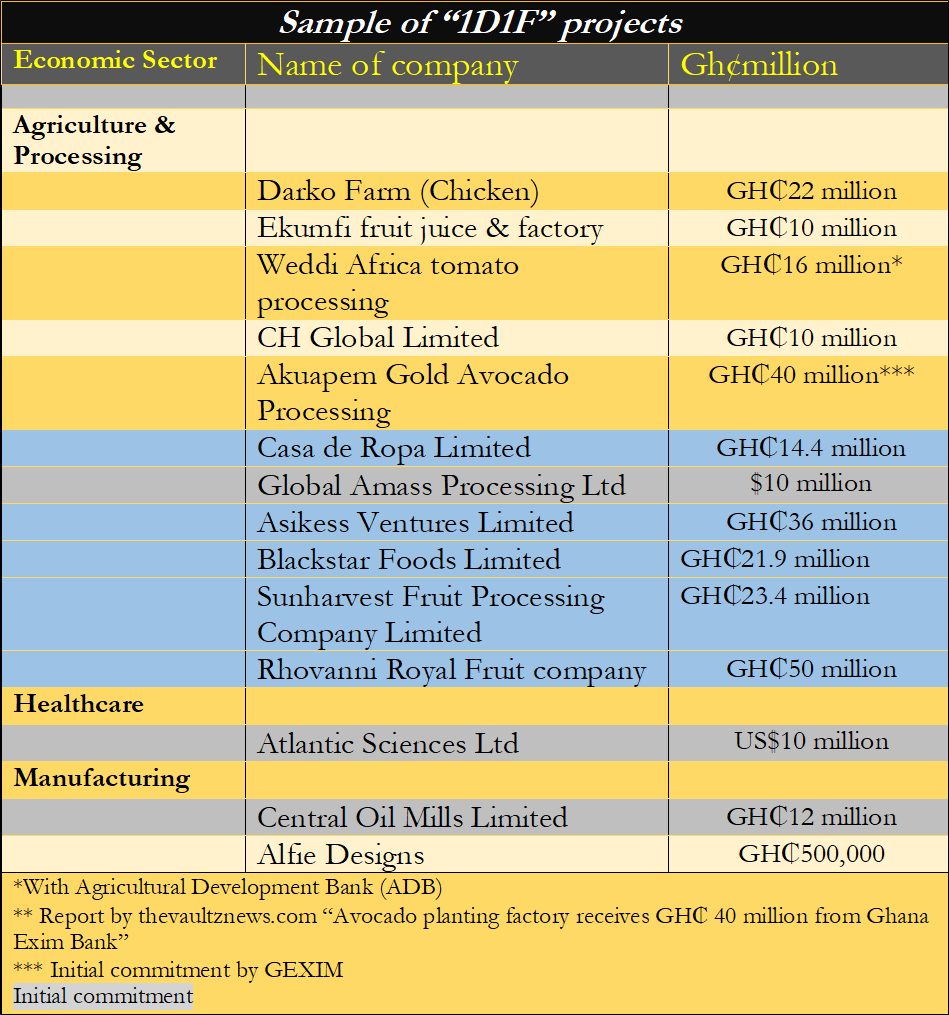Mission of the Ghana Exim Bank: Reduce import dependence
Elikam Esene, London, UK
April 16, 2024
T he Ghana Exim Bank (GEXIM) is a State-owned credit export agency. It started commercial operations in 2016 following the adoption of the Ghana Export-Import Bank Act 2016 (Act 911). The principal mission of this institution is the elimination of ‟critical market failures in the Ghanaian economy” that make Ghana uncompetitive in the global marketplace1. GEXIM provides credit facilities to exporters and buyers or to their banks. It facilitates the import of manufacturing inputs and equipment through short term, medium and long-term finance. GEXIM wants to develop export and cross-border trade, and turn Ghana into a pillar of regional and continental trade.
But to achieve this goal, Ghana must tackle structural issues. GEXIM strives to reverse a chronic trade pattern in which hydro-carbon, mining, and agriculture dominate trade. The bank also wants to reduce trade concentration. Ghana exports mainly to Europe, North America, and Asia, while trade with African country only 14 percent of export.
Equally complex, is the challenge of reversing consumer taste, which makes domestic production uncompetitive. The Ghana Food and Drug Administration (FDA) conducted a survey in 2022 on the availability of domestic products2. This survey found that out of 6,999 fast moving goods sold in domestic supermarkets, 79 percent are foreign products, with only 21 percent made-in-Ghana brands. The top products produced in Ghana were eggs (100 percent produced in Ghana), followed by mineral water (with 61 percent), fruits and vegetables (56 percent), and butter spreads (34 percent).
Products and services
GEXIM offers three conventional trade finance instruments. The first is the pre-shipment credit facilities. It offers financial resources for the purchase of raw materials and other inputs for export production. The second is the post-shipment credit. This instrument bridges the gap between production costs and export sales receipts and shortens cash flow and operating cycles. Export receivables finance, buyer’s credit, and bills’ discounting are examples of facilities in post-shipment finance. Finally, GEXIM offers contingent liabilities, where GEXIM substitutes its credit for that of its customer. Contingent liabilities are off-balance sheet instruments. They take the form of supplier credit guarantee, letters of credit and loan guarantee. In this instrument, the validity period limits the bank’s liabilities.
GEXIM devotes resources to manufacturing and export initiatives. In this domain, GEXIM’s flagship project is the ‟One-District-One-Factory” initiative, also code-named ‟1D1F”.
The government launched the ‟1D1F” on August 25th, 2017. The goal is to reduce dependency on import and boost ‟manufacturing, value addition, and export of processed goods”.On August 20th, 2021 Minister of Finance, Ken Ofori-Atta, reported that GEXIM had financed 122 ‟1D1F” projects in 16 regions. GEXIM alone has invested over US$134.4 million (GH₵2.1 billion) through loan facilities since the start of the ‟1D1F” program. These loans targeted small and medium-size enterprises in agro-processing, healthcare, and pharmaceuticals and manufacturing.
Sample of industrial projects

Compilation: neweconomyghana.com
Trade finance gap
Low access to finance for SMEs remains ‟a perennial challenge”6 according to Elisie Addo Awadzu, Second Deputy Governor of the Bank of Ghana7. Past report from the World Bank corroborates this assessment. In 2019, the bank estimated that the financing gap of Ghana SMEs was 13 percent of GDP (about US$6.1 billion in 2017)8. This is a paradox in a country where SMEs account for over 92 percent of businesses and contribute 70 percent of Ghana’s GDP9.
Today, Ghanain authorities expect trade finance to fill this financing gap. But in 2022, the World Trade Organization (WTO) estimated that trade finance intermediation by domestic banks covers only US$9 billion worth of trade. This leaves a trade finance gap of US$3 billion10. One reason for this trade finance gap is the predominant lending model. Banks prefer collateral to cash flow-based lending and are averse to start-up financing models.
In search of partnership
GEXIM says that it is willing and ready to cooperate with Ghana’s bilateral development partners. In 2019, it signed a cooperative agreement with the US Exim Bank. This agreement is a ‟statement of intent” to cooperate, using US Exim’s medium term loan guarantees for on-lending. The scheme targets qualified Ghanaian SMEs. The US Exim has set a ceiling of US$300 million to disburse, for transactions of up to US$10 million per SME or per project.
GEXIM reached a similar agreement with Credit Suisse. On May 25, 2021, during a presentation to the Parliament of Ghana (Select Committee on Trade, Industry, and Tourism), CEO Mr. Lawrence Agyinsam announced a partnership with Credit Suissem which secured US$150 million Credit Suisse Facility. GEXIM has received a first disbursement of US$100 million. Other partnerships include a Memorandum of Understanding (MOU) with Indonesia EXIM, India EXIM, and Slovenia EXIM for capacity building. Agriculture and manufacturing are priority sectors for GEXIM and the bank is looking for cooperation in these fields.
Related Articles
BIBLIOGRAPHY
1❩ https://www.eximbankghana.com/vision-&-mission
2❩ FDA (2022): Food and Drugs Authority policy brief, October 2022. Vol: 01, Issue: 01
3❩ www.1d1f.gov.gh
4❩ Ministry of Finance (2021): Make Ghana’s Export Expansion Agenda your Priority - Ken Ofori-Atta tells New Ghana Exim Bank Board - https://mofep.gov.gh/news-and-events/2021-08-20/make-ghana-export-expansion-agenda-your-priority-ken-ofori-atta-tells-new-ghana-exim-bank-board
5❩ GEXIM Stakeholder News Letter, Volume 4
6❩ World Bank (2019): Improving Access to Finance for Ghanaian SMEs: Is there a Role for a New Development Finance Institution? - https://www.bog.gov.gh/wp-content/uploads/2023/05/2ND-DEPUTY-GOVERNORS-REMARKS-LAUNCH-OF-ABSA-SME-LOAN-AT-10.pdf
7❩ Elisie Addo Awadzu (2023): Launch of Absa SME loan at 10 percent - https://www.bog.gov.gh/wp-content/uploads/2023/05/2ND-DEPUTY-GOVERNORS-REMARKS-LAUNCH-OF-ABSA-SME-LOAN-AT-10.pdf
8❩ https://documents1.worldbank.org/curated/en/934351587974318392/text/Improving-Access-to-Finance-for-Ghanaian-SMEs-Role-for-a-New-DFI.txt
9❩ E. A. Awadzu ibid.
10❩ WTO (2022): Trade Finance in West Africa - International Finance Corporation (IFC) and World Trade Organization (2022): Trade Finance in West Africa - https://www.wto.org/english/res_e/booksp_e/tfinwestafrica_e.pdf
